Text
How to describe things in English
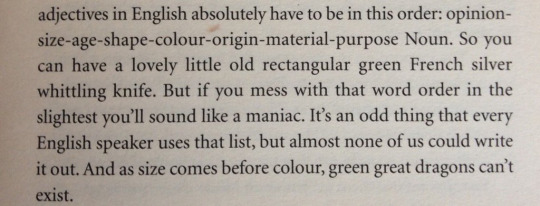
The Elements of Eloquence: How to Turn the Perfect English Phrase by Mark Forsyth
0 notes
Text
NO DAMS: A Visual Essay
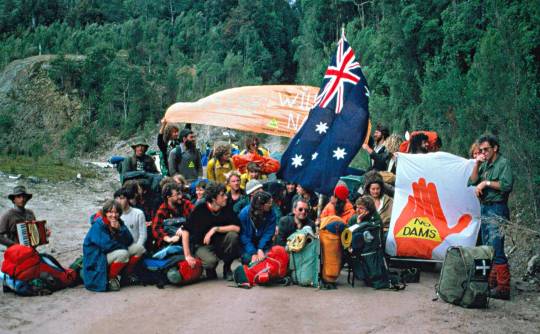
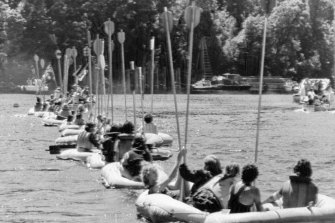

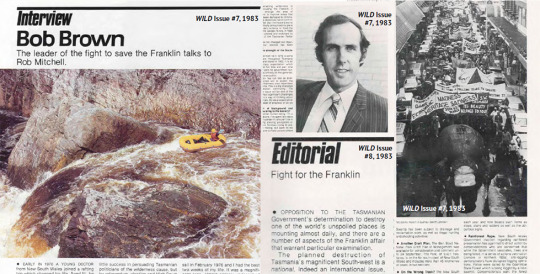
youtube
youtube
youtube
youtube
youtube
#franklin river#franklin river dam#NO DAMS#tasmania#southwestern wilderness#hydro electric#eco activism#conservation#protest#bob brown#tasmanian wilderness society#Youtube
0 notes
Text
The Ministry for the Future - Kim Stanley Robinson
This recommendation has fundamentally changed the trajectory of my year. And possibly the next decade for me. I knew about the challenge facing us with climate change, I was well aware and delved into the movement in 2008 after Al Gore’s An Inconvenient Truth came out. Back then, I was actually a youth. One of the generations that would be directly affected by the impending climate disaster. I was energised and optimistic, but with only dead ends at a higher policy level, my steam soon ran out.
I avoided the resurgence in eco activism/awareness in the last few years. I saw headlines counselling the new ‘eco-anxiety’ that has come about from leaning too far into the science and politics of Climate Change. Why would I give myself more anxiety about something that I can’t fundamentally change, as an individual or even through an activist group? Isn’t that what the world doesn’t need - another privileged white woman buying activewear from recycled plastics and blaring on about beeswax wraps?
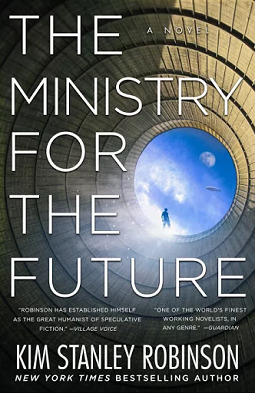
In this frame of mind, and also in an anti-sci-fi context, I came to The Ministry for the Future. The first chapter about the Indian Heatwave seemed like an interesting and plausible inclusion. It’s likely that the hottest places will keep getting hotter. These are countries closest to the equator. These are largely developing nations of black and brown people. Then the ‘Ministry for the Future’ is set out by the 2025 Paris Accord. Yes, also something that would come out of the UN. Unlikely to drive real change. Something else that Greta Thunberg to scold as well intentioned yet lacking real change.
The 7 or 9 (I returned the library book and can’t remember specifics now) areas within the department were fascinating. Each represented a key threat to the climate, and Robinson took us on a journey to explore the solutions that were mostly all existing ideas that were implemented as intended. I didn’t think glaciology would interest me as much as it did when reading those passages. The bit that was the turning point for me (and it seemed like the future world) was Saudi Arabia’s coup. (Spoiler alert coming). It seems like such a simple chain of events…. Saudi Arabia as a nation fails. New government keeps oil in the ground. Becomes rich from carbon coins. Oil prices skyrocket worldwide. Renewables and EVs suddenly become ridiculously affordable. Power grids worldwide are transformed.
To get the world’s grids to renewables that quickly is a huge idea. It could really transform the future of the planet. Don’t ask me how much, I’m not a scientist, but if anything these ideas and happenings in the projected future of the book make it clear that real change comes at a policy level. We need our lawmakers to start listening and doing better.
I didn’t really care for Mary and Vadim’s story arcs at all. I wasn’t in the book for great literary characters and didn’t want half baked ones. Mary lacked depth, and so did everyone around her.
I’ve recommended this book to everyone that will listen since. I’ve also listened to a few podcasts with Robinson, and added his other books to my reading list (though I won’t read too quickly, as I don’t want to get KSR-fatigue!). I also added a slew of other climate and environment related books to my list, as now it’s important to me, I need to read up and across the topic to understand as much as I can. I don’t consider myself an environmentalist, but it’s becoming clear that issues are intersectional. Helping the environment helps everyone.
Lateral reads and viewing
Project Drawdown explains how the solutions work in very accessible terms, with details available for the nerds.
How To Save a Planet podcast from Gimlet Media is one that I've heard about for awhile but never tried. Now I'm hooked. Alex Blumberg and Ayana Johnson are fantastic hosts and do a really good job.
Dense Discovery is a weekly newsletter that I've been subscribed to for some time that has great sustainability info.
Project Wren allows you to calculate your carbon footprint and offset in one go or in a monthly subscription. I'm now aware that there are many services that offer this, this is just one.
Anything David Attenborough is a good companion piece when learning about the environment.
Seaspiracy on Netflix has a bit of a vegan propaganda vibe to it, but worthwhile and makes me reflect on my power as a consumer to purchase sustainable (?) fish.
#kim stanley robinson#the ministry for the future#reading list#climate change#global warming#drawdown#an inconvenient truth#2050#1.5degrees
0 notes
Text
Desecration

by Rosalind Langford, Yorta Yorta and Wadjari woman
Our Heritage - Your PlaygroundAuthor(s): R. F. LangfordSource: Australian Archaeology,
No. 16 (Jun., 1983), pp. 1-6Published by:
Australian Archaeological Association
#rosalind langford#australian archaeology#colonialism#desecration#always was always will be#blakstories
0 notes
Text
Amy Tan Netflix Special
I’m reading Amy Tan’s back catalogue out of order and for this I feel terrible. I first read her recent memoir, then the Kitchen God’s Wife, then the Joy Luck Club. The other ones are on long-holds at the library, but in the meantime I have watched the Amy Tan special on Netflix - Amy Tan, Unintended Memoir.
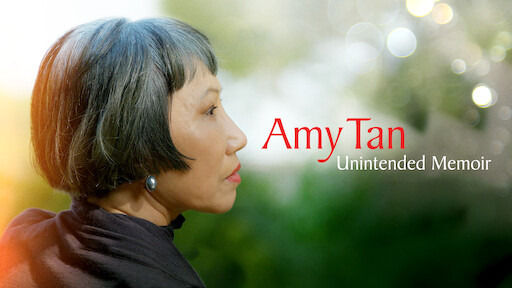
I was so glad to see this come out! I love Amy Tan! She is an incredible writer and woman of words. She has a fabulous fashion sense and a bangin' haircut she's rocked for decades. To think she took up writing as a hobby and was ‘discovered’ at a writer’s retreat makes her success seem so attainable. But then you realise that she was a born novelist, to see her practicing medicine and playing the piano would not have been satisfying for her or fair to the world.
She wrote something in her memoir, and I’m going to bastardise it here, about writing an Asian American novel. That her novels have always been labelled Asian American, and never considered in the same category of potential Great American Novels, simply because they are immigrant stories. Are Great American Novels and immigrant stories mutually exclusive? Isn’t the great American dream the same as the great immigrant dream: to end up better than where you started? Also, aren’t we all immigrants to this country?
Tan fundamentally sees herself as American, as she has politely pointed out over the decades, and not Asian American. Why would she? She was born in America.
The thought, however, that the immigrant mothers see their children as ‘American children’ is thought provoking for me. She's really able to capture this feeling that while there’s an intrinsic, sacred bond between mother/daughter or mother/children, when the children grow up in a culture that is different to yours, there are the questions of identity and feelings of loss and sacrifices that hang heavy in the air between you. The gentleness with which she introduces these thoughts made me realise my own ignorance to these complexities.
I was surprised that the Netlflix special didn’t delve into her diagnoses with MS at all. To be honest, when I saw it in the list at first I thought it would be highly centred on her journey with MS. Tan looks in perfect health with no visible speech or motor symptoms. I’m sure there’s more to the story, and it was a conscious choice to omit this detail. As someone with MS in the family line, I’m interested, but again just because she has or is something doesn’t make her a spokesperson for all people of that category.
Amy Tan - Would recommend!
1 note
·
View note
Text
Dissenter on the Bench
by Victoria Ortiz

This book is the perfect gift for the young female in your life. The optimism of the law will seep into her veins and hopefully catapult her into a faultless journey of social activism.
Each chapter featured a case that RBG was involved in, and a loosely related development in her life. I might be too traditional but I think I would have preferred a chronological approach with her life story first, and then detailed summaries of each case and its significance.
Something I would like to have seen more of in this account is any flaws or misjudgements RBG made. This criticism isn’t just for this book, but most accounts of RGB. Yes, she was a fantastic supporter of human rights and especially minority and female rights, but she was also a human like you or I. Surely she made mistakes? What could she have done better? If we idolise a standard of perfection that doesn’t exist then we are setting ourselves and the future up for failure. A part of biographies and autobiographies that I look forward to is the grey and black that balances out the light.
If you’ve seen the two movies about RBG, then you don’t need to read this book as well. If you’re new to RBG (as she’s been part of the zeitgeist for a few years now I imagine that’s very few people) you would benefit from it. And if you’re a feminist young adult then the book is perfect for you.
TLDR: watch the movie.
Lateral viewing
RGB (2018)
On the Basis of Sex (2018)
1 note
·
View note
Text
When Breath Becomes Air - Paul Kalanithi
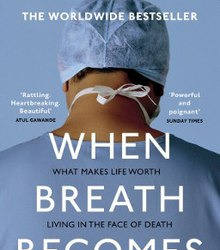
The foreword by Abraham Verghese sets the stage for this book. Kalanithi isn't primarily a writer, but maybe he should have been, he muses? He seemed to have just ‘fallen into’ neurosurgery after having studied (of course, years and years of other medicine) theology and literature amongst other things. At the age of 36, already renowned as a talented nuerosurgeon-neuroscientist, Kalanithi is diagnosed with stage IV lung cancer.

There are layers upon layers of heartbreak in this story. His age - so young, just as he was about to finish his residency. His partner, with whom he was going to start a family with after the residency ended. His unborn child/ren, whom he will never be around to see grow up. The connectedness between his profession and his disease - he was treated in the same hospital, same rooms, same technology, that he used with his patients. The loss of what was never to come, his unrealised talent for writing, and patients untreated. It was all just so unfair, and cruel, but you never heard any anger come out.
“Science may provide the most useful way to organize empirical, reproducible data, but its power to do so is predicated on its inability to grasp the most central aspects of human life: hope, fear, love, hate, beauty, envy, honor, weakness, striving, suffering, virtue.”
He embarked on a quest to discover what makes life meaningful in the face of his diagnoses. The amount of uncertainty the early stages of his disease eats away at him - and you can see why. He carefully and profoundly explains all the competing short- and long-term goals and values and weighs them against the logistics of managing a terminal illness. What is important when you’re going to die soon?
“There is a moment, a cusp, when the sum of gathered experience is worn down by the details of living. We are never so wise as when we live in this moment.”
It was truly profound, although if I had to criticise it, I wish he had opened up a bit more. You would think that the whole book would be a confessional of his innermost worries and thoughts. But I felt like he held back a bit. He let us in to the big pie-in-the-sky questions, and the logistics, but what about something as simple as fear? I would have liked to strip the intellect back once or twice and just ‘be with him’, as he was at that time.
Of course, the end was terminal. The suddenness of which he died during writing did shake me and I noticed other readers felt the same. The epilogue by his late wife Lucy was warm and equally as profound. It was with great joy that I realised I had previously heard of Lucy Kalinithi in this headline from last year.
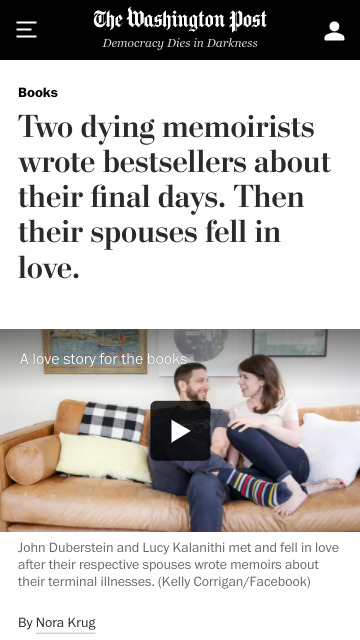
I have no related lateral reading or viewings for this one. I and most people I know are in non-medical professions, so the weight of working with life through to death isn’t something I am familiar with or seek out. I would welcome recommendations to change this.
1 note
·
View note
Text
The Hate Race - Maxine Beneba Clarke
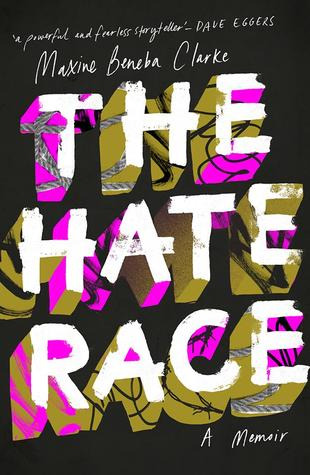
Maxine Beneba Clarke is so clearly a poet. It would have been a crime for her not to write. Reading this book I felt like I was in the room, sitting with the uncomfortable scenes being played out before me, powerless to do or change anything.
Clarke shows us how racism changes you as a person. The big things stay with you but the little things chip away at you. It’s not all at once that you realise life is fundamentally different for you as a non-white Australian, it’s bit-by-bit, and painfully.
“I learned to stay quiet. I learned that nobody much cared. I learned that it was probably my fault anyway, and that what they were doing to me was perfectly okay. This is how it alters us. This is how we change.”
I grew up a little later than Clarke, but am disappointed that attitudes of casual racism and ignorance still largely persisted in my community. While we’ve changed a lot and there’s no way a lot of the horrific experiences Clarke mentioned in the book would happen today, unfortunately there’s still a way to go. It was especially heartbreaking how she described the adults in positions of authority (teachers, coaches, parents) who perpetuated or ignored racism directed towards her.
By the way, I also had to look up Kellyville in Google Maps to see where it was. It certainly isn’t semi-rural anymore, this is one of the images that came up:
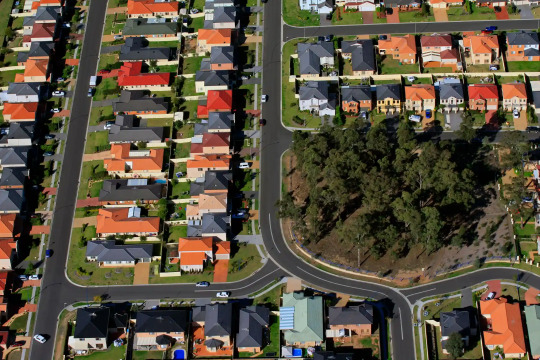
A big change since Clarke’s childhood in the 1980s I’m sure.
Lateral reading and viewing
In the same week I read this book I also saw Rosemary’s Way at an Asylum Seeker Centre fundraiser. I would highly recommend going to a screening or holding one yourself as a fundraiser.
Go Back To Where You Came From by the SBS also investigates what it’s like to grow up as a non-white Australian
One chapter in the book reminded me of how good Harry Belafonte is. I’ve had this playlist on repeat this week.
From the same book club that suggested this book, I also came across White Tears, Brown Scars by Ruby Hamad, and Girl, Woman, Other by Bernadine Evaristo. Both are wonderful and highlight the ‘othering’ of groups with black or brown skin.
0 notes
Text
Deep Time Dreaming: Uncovering Ancient Australia - Billy Griffiths
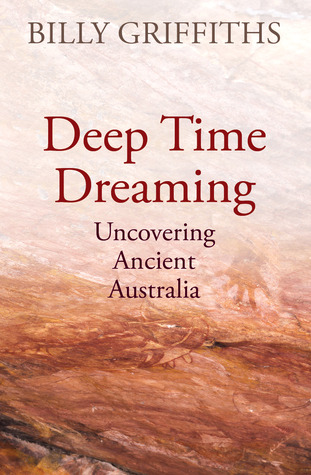
This would be a fantastic book for people with an interest in archaeology. For non-archaeology enthusiasts it’s still worthwhile. While I don’t care for long passages about Pleistocene this and that and university appointments, it was a gentle entry into the nuanced and infant world of Australian archaeology.
At times the passages felt like a roll call of academics. But then I realised this is what academic articles are - basically a very long list of scholars (by Last Name, First Initial, Year), a statement of their findings, and a sentence or two to build on or renege their findings. The way Griffiths has written this book makes otherwise tedious journal article discussions come to life and actually of interest to normal people.
Three interludes break up the book with commentary on important events occuring in the Australian Archaeology community at the time. These set the scenes for the findings in the following chapters.
I was surprised at the range of topics covered. There was Mungo Man, the Tasmanian Aboriginal existence, Truganinni,, rock art, tools, migration, and my new related binge - the Franklin River Dam activism movement. I’ve seen a few “NO DAMS” yellow triangle bumper stickers still kicking around and never actually got to the bottom of it. Turns out the story is brilliant. It’s the beginning of fervent conservationist Bob Brown’s career in politics, how Hawke won the 1981 election, the power of donkey votes, and grassroots activism and blockades. I’ll post some related binges separately.
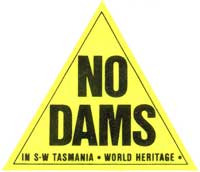

The conservation movement was loosely tied to archaeology; there were findings in the Kutikina caves (in Southwest Tasmania) that tied the Tasmanian Aboriginal presence to the Pleistocene (ice age). Tasmanian Aboriginal activist Rosalind Langford critiques the convenient ‘discoveries’ in the caves that were tied to conservation efforts. How can White people own conservation for a land that isn’t theirs?
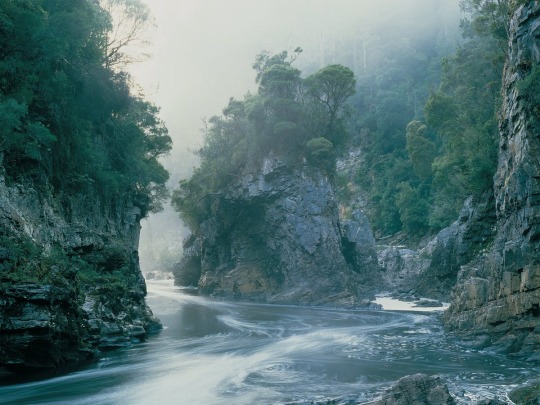
Langford made an amazing entry to the Australian Archaeology Association Journal in 1983. It is a ripper and must be read in full. It brings up pertinent points on Australian archaeology. Does history belong to all of mankind, or the group whose history it is?
Why are we reliant on (often problematic) archaeology to assist with land rights claims when the land is ours to begin with? Is it fair that the value of the scientific research relies on the values and sacred spaces of a culture, to increase in significance for the reasearching culture?
“The Issue is control. You seek to say that as scientists you have a right to obtain and study information of our culture. You seek to say that because you are Australians you have a right to study and explore our heritage because it is a heritage to be shared by all Australians, white and black. From our point of view we say you have come as invaders, you have tried to destroy our culture, you have built our fortunes upon the lands and bodies of our people and now, having said sorry, want a share in picking out the bones of what you regard as a dead past. We say that it is our past, our culture and heritage, and forms part of our present life. As such it is ours to control and it is ours to share on our terms. That is the Central Issue in this debate.”
Read Our Heritage, Your Playground
Ultimately the book discusses the fraction of knowledge we have about ancient Aboriginal culture and artefacts, and how recently (basically like yesterday in the scheme of things) we began to be interested in them. With so many mistakes made in the early years of Australian archaeology, it’s been a journey to reach a collaboration with the Traditional Custodians of the land of research. There are so many nuanced issues of permission, sacred-secret artefacts, Aboriginal diasporas, colonisation, land rights, and conservation that all intersect with archaeological interests.
From Langford’s journal piece:
“...we will fight to prevent our heritage being treated as an historic commodity. We are the custodians. You can either be our guests or our enemies. That decision can only rest with you.”
Lateral reading and viewing
Our Heritage, Your Playground is the journal article by the Tasmanian Aboriginal woman Rosalind Langford.
The Last Tasmanian is mentioned as a problematic depiction of Aboriginal History in Tasmania. There is are thousands of ethnically Tasmanian Aboriginals that moved to nearby Flinders Island after colonialism that are neglected from this story. It's a product of its time and worth viewing to understand the attitudes and mistakes made by white people telling black stories.
The Mungo Man is on NITV and SBS OnDemand until the end of June. The repatriation of excavated bones to Traditional Custodians to rebury is finally happening.
The Franklin River Dam Movement - Bob Brown himself reflecting on the importance of the Franklin River Dam campaign after nearly 30 years.
Paperback, 384 pages
Published February 26th 2018 by Black Inc.
URL https://www.blackincbooks.com.au/books/deep-time-dreaming
Literary Awards Adelaide Festival Award Nominee for Non-Fiction (2020)
Billy Griffiths is the author of The China Breakthrough and co-editor with Mike Smith of The Australian Archaeologist’s Book of Quotations. He is a research fellow at the Alfred Deakin Institute for Citizenship and Globalisation.
#deep time dreaming#mungo man#mungo woman#australianarchaeology#archaeology#franklin river#franklin river dam#rosalind langford#billy griffiths#the last tasmanian#bob brown#reading list#bookshelf#australianliterature#bibliophile
2 notes
·
View notes
Video
youtube
Is there an accent she can’t do?
1 note
·
View note